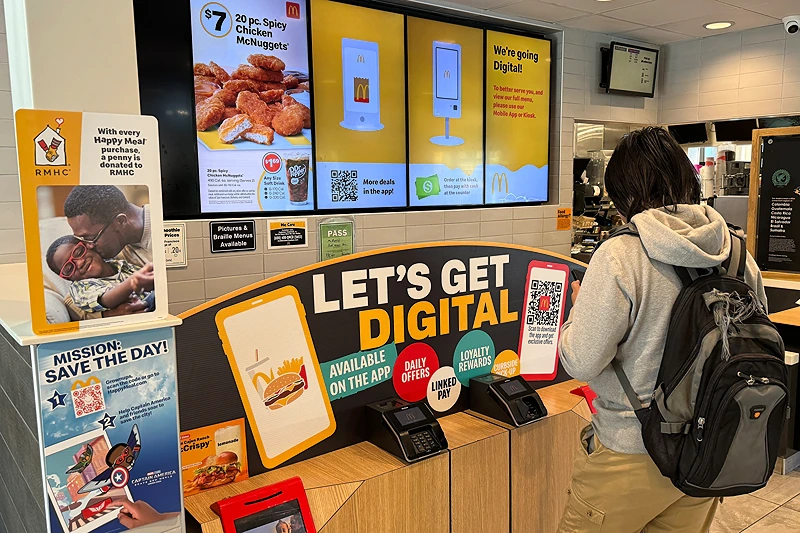One America News Network loses 10,000 jobs

OAN’s Brooke Mallory
12:46 PM – Thursday, June 6, 2024
As struggling businesses reduce labor expenses and boost prices to counteract wage hikes, fast food restaurants in California have eliminated over 10,000 jobs as a result of the state’s new $20 minimum wage, according to a trade group that reported the findings on Thursday.
Advertisement
The law went into effect on April 1st, and the California Business and Industrial Alliance (CABIA) heavily blamed Democrat Governor Gavin Newsom (D-Calif.) for passing it. The regulation forced the popular Mexican chain, Rubio’s Coastal Grill, to close 48 of its sites in the state last week.
“California businesses have been under total attack and total assault for years,” CABIA president and founder Tom Manzo told Fox News. “It’s just another law that puts businesses in further jeopardy.”
A number of well-known establishments, such as McDonald’s, Burger King, and even the budget-friendly In-N-Out Burger, were forced to raise their prices to make up for the increased pay.
Many were forced to reduce staff hours, and some hastened the transition to automation.
After Newsom signed California Assembly Bill 1287 into law last year, Manzo reported that over 10,000 fast-food restaurant jobs had been eliminated. He stated that policymakers were living in a “fantasyland” when they believed that significant wage hikes would benefit employees or companies.
“You can only raise prices so much,” he said. “And you’re seeing it. People are not going to pay $20 for a Big Mac. It’s not going to happen.”
In a full-page advertisement that ran on Thursday in USA Today, CABIA parodied well-known fast food corporations’ “obituaries.”
The first big chain to be affected by the new regulation was Rubio’s Coastal Grill, which is well-known for its fish tacos. At the end of May, 48 of its approximately 134 sites were closed. The closures were attributed by the San Diego-based company to the state’s “increasing cost of doing business.” On Wednesday, the chain filed for bankruptcy.
Fosters Freeze, another fast food chain, closed some of its branches as well, citing financial difficulties for the franchise owner to continue paying employees the higher wages.
According to a recent analysis from Kalinowski Equity Research, Taco Bell increased menu pricing by 3% and Starbucks increased beverage costs by at least 50 cents in California after April 1st. Marcus Walberg, whose family owns four Los Angeles-based Fatburger locations, informed Business Insider in January that he intended to increase menu pricing by 8% to 10% in reaction to the new legislation.
Between mid-February and mid-April, Chick-fil-A prices also increased by 10.6%.
According to a recent LendingTree survey, 78% of consumers now view fast food purchases as “luxury” purchases due to how pricey meals have become. However, one bright side is that many customers have now started dining at mom-and-pop eateries more often than fast food joints, as local family-owned restaurants typically provide fresher-tasting food and a friendlier atmosphere.
Giving fast-food employees “greater financial freedom” in a state already known for its high cost of living through the “Sunshine Tax” was a contributing factor in the hike’s advocacy. However, critics counter that fast food employment was designed to be a stepping stone for young people. They also argue that there is no benefit to receiving higher wages if you end up losing your job as a consequence, or if your position is replaced by automation.
Stay informed! Receive breaking news blasts directly to your inbox for free. Subscribe here. https://www.oann.com/alerts

